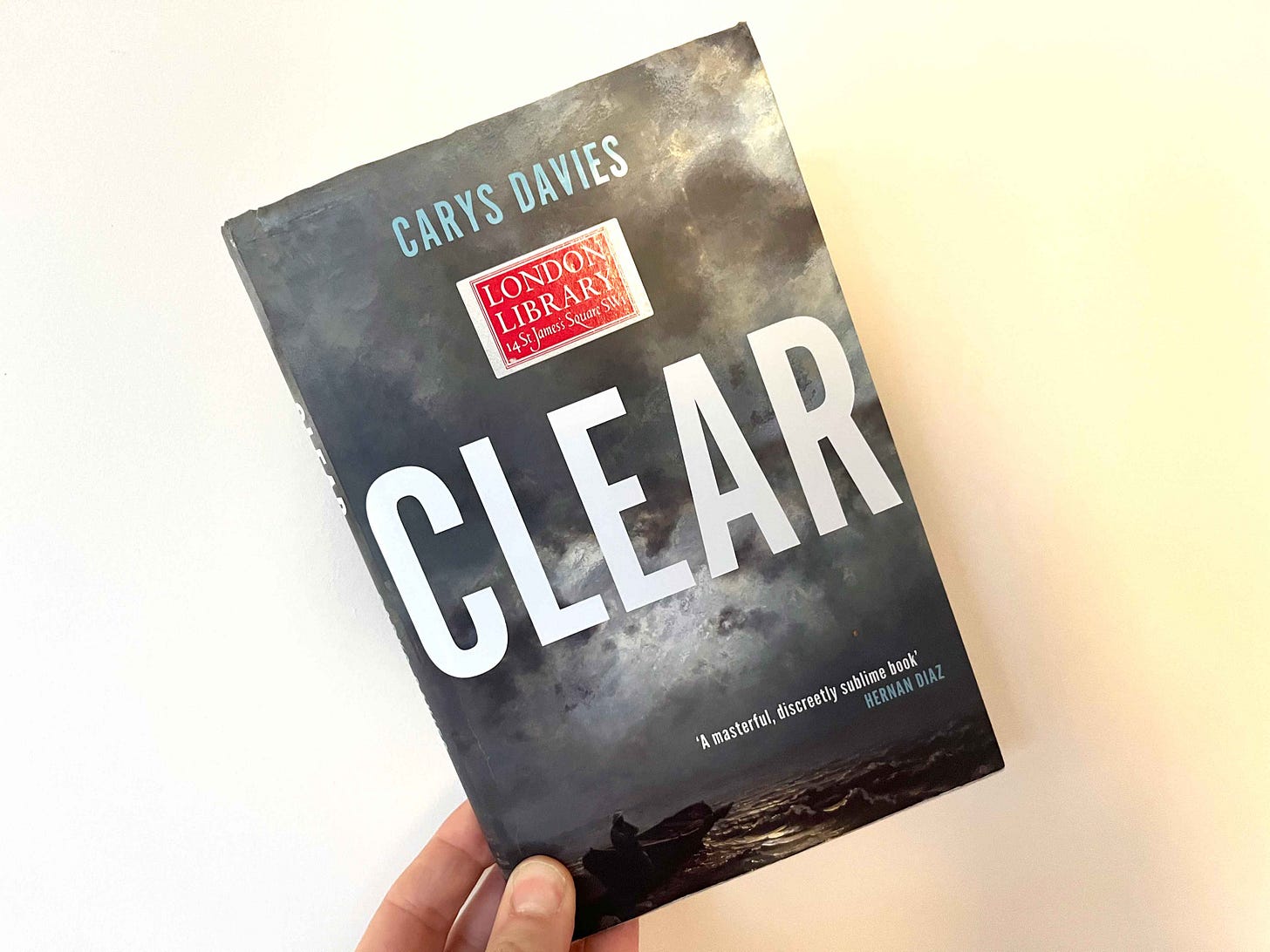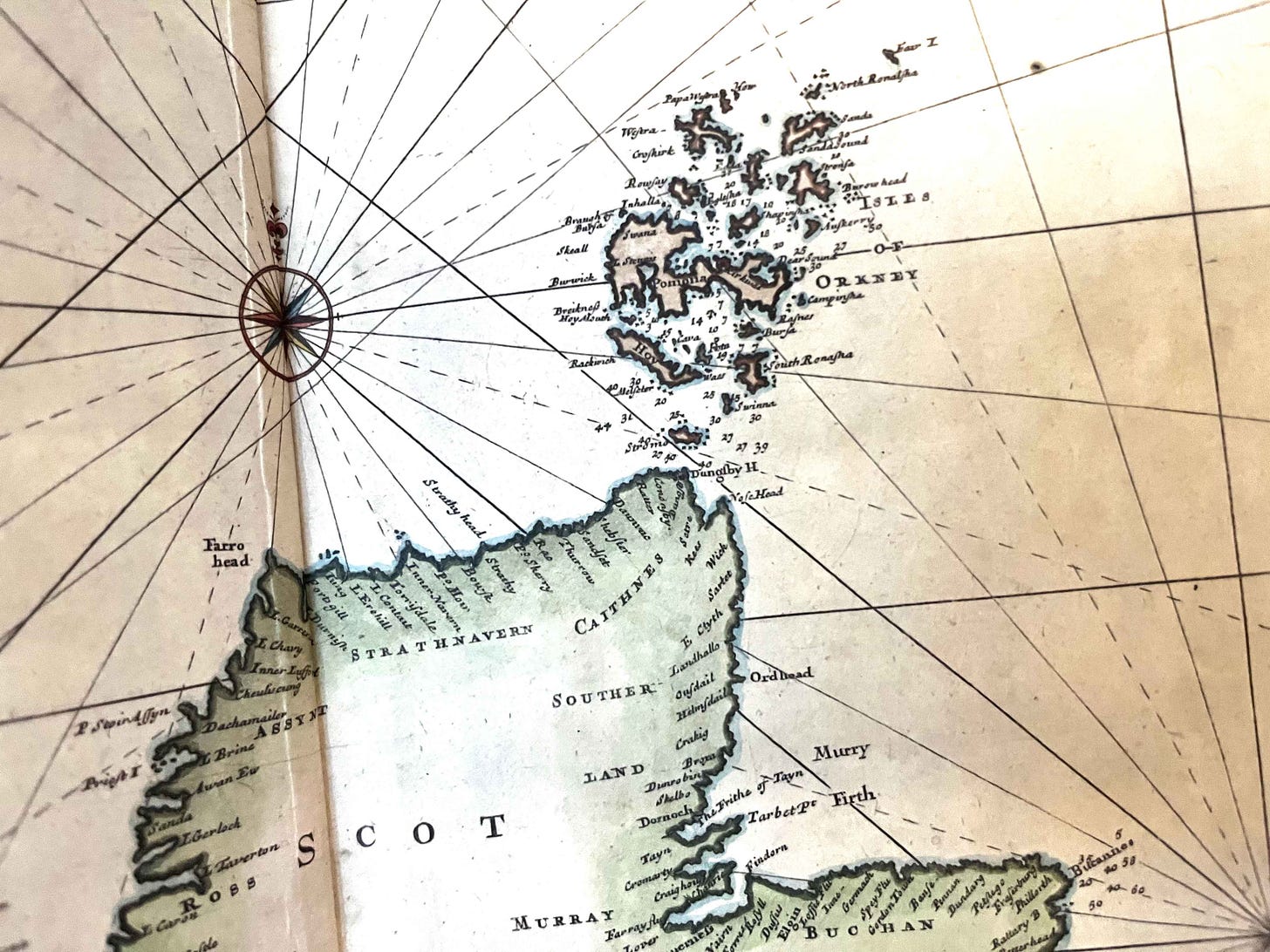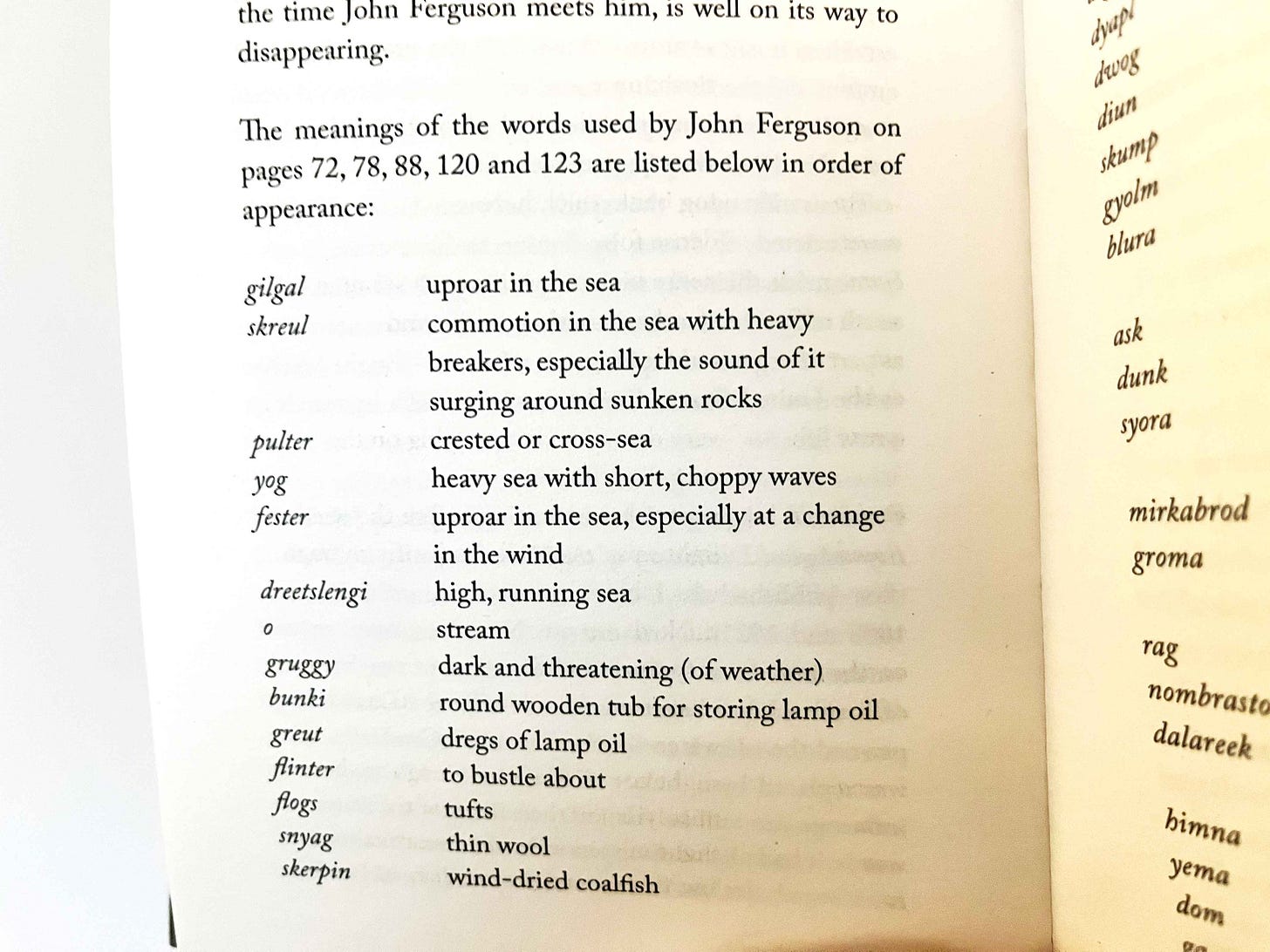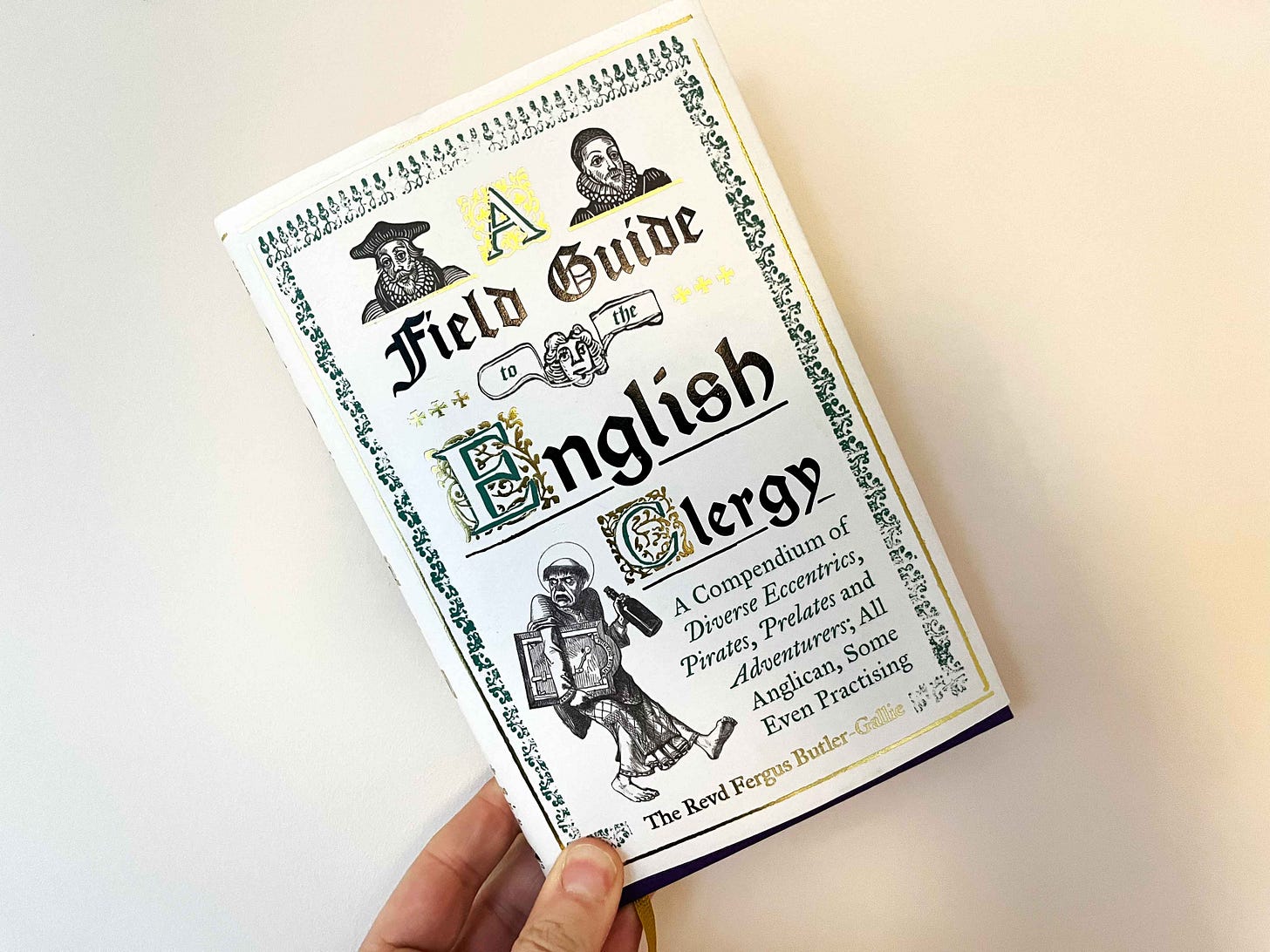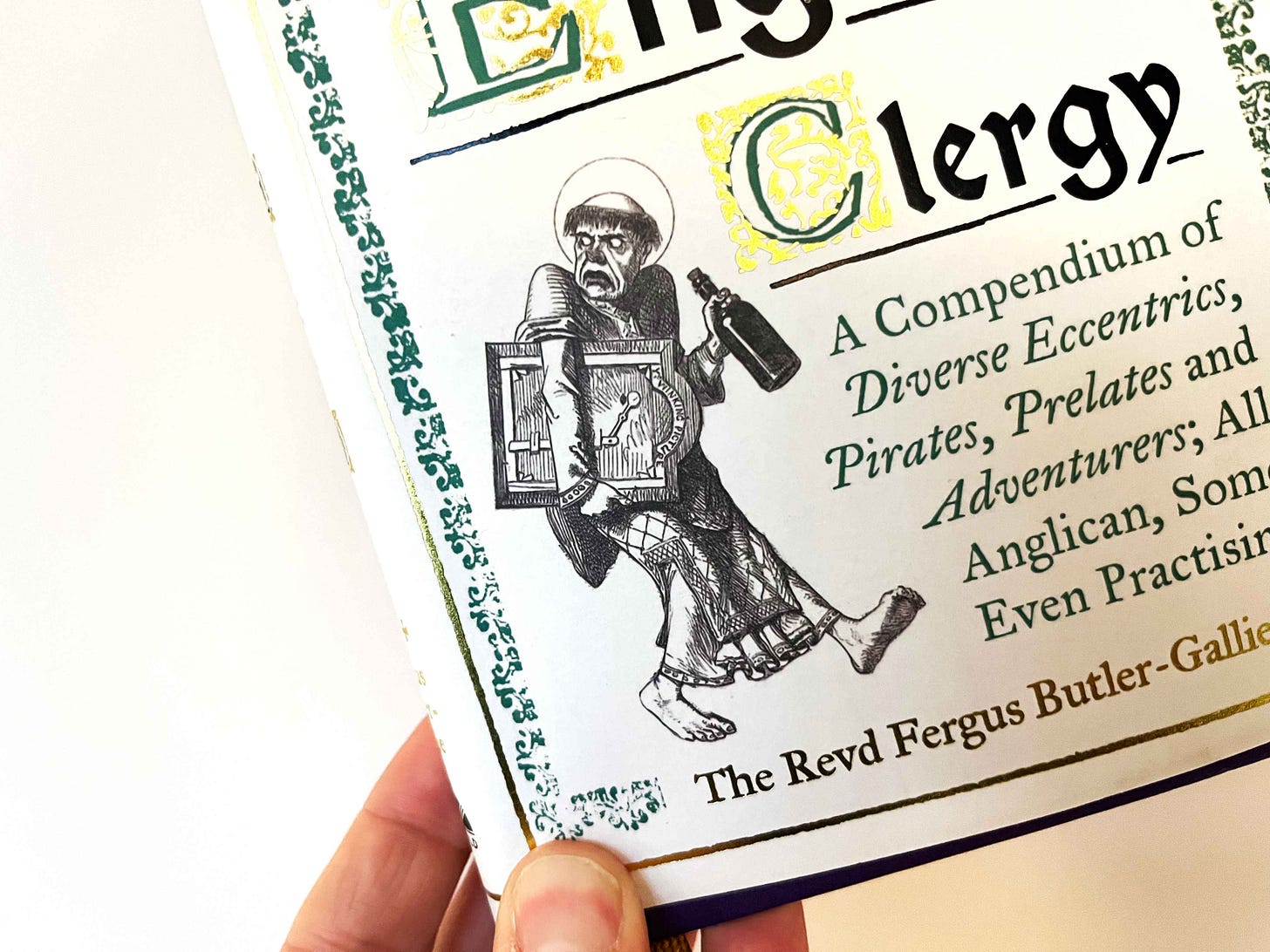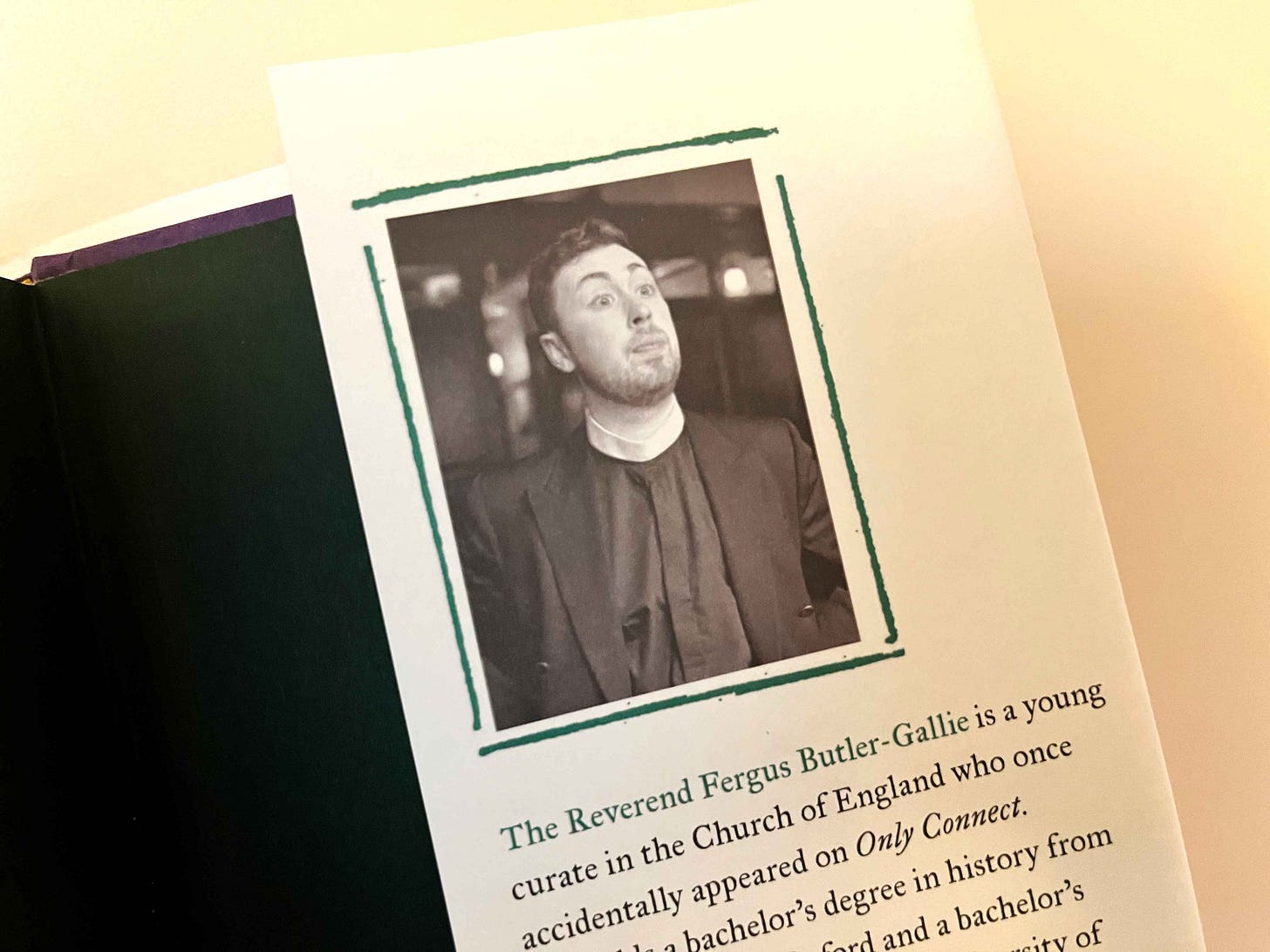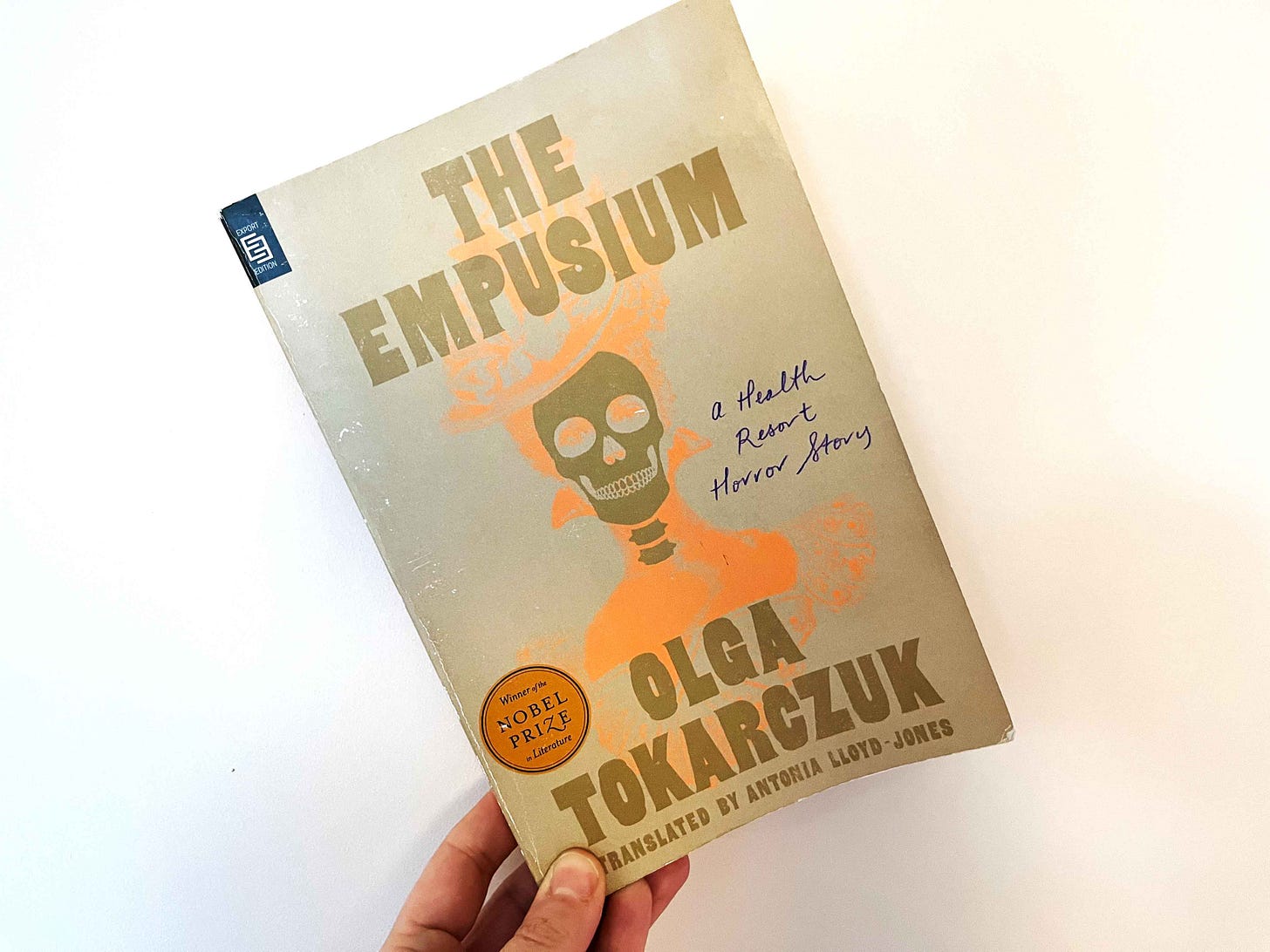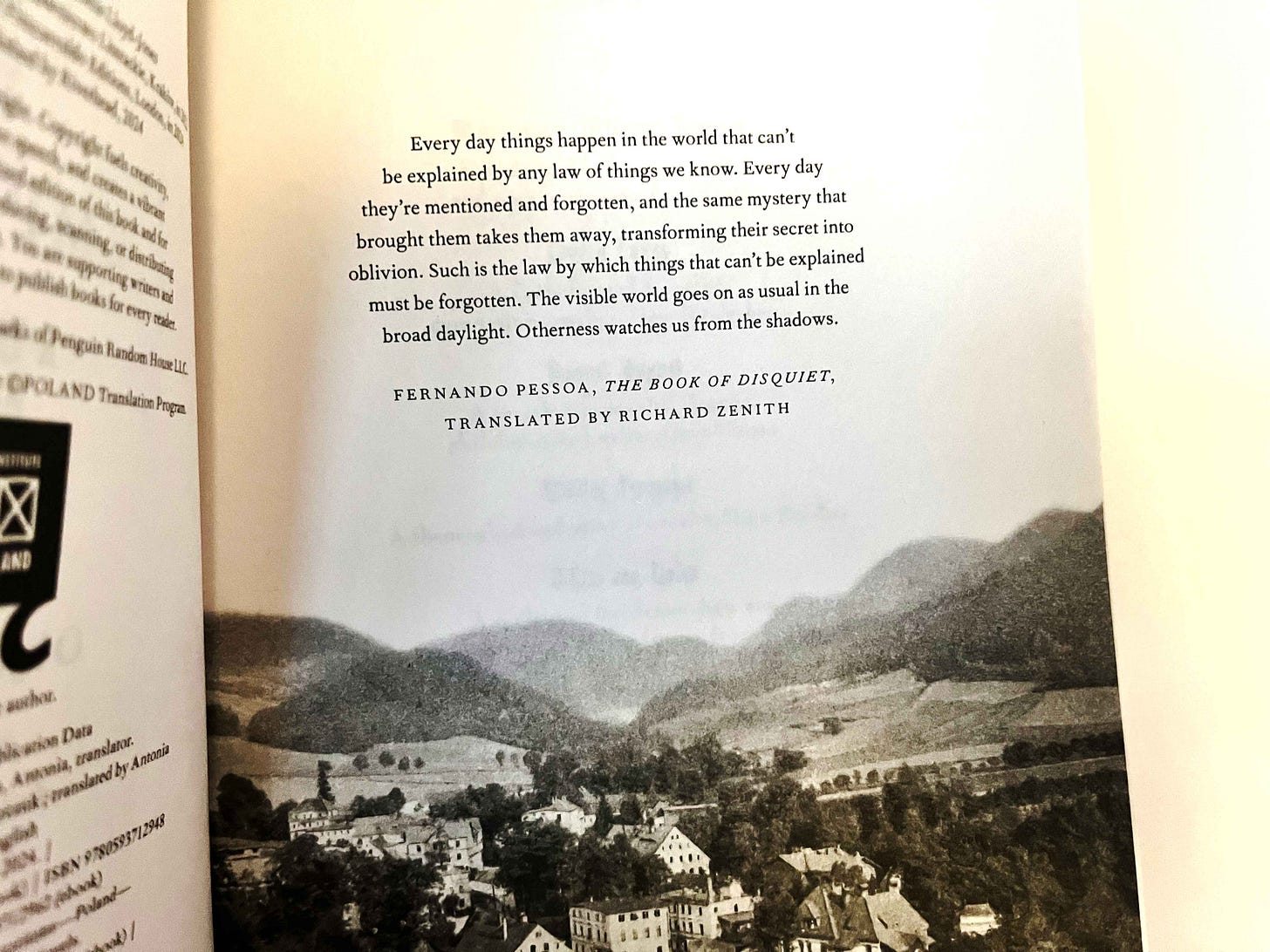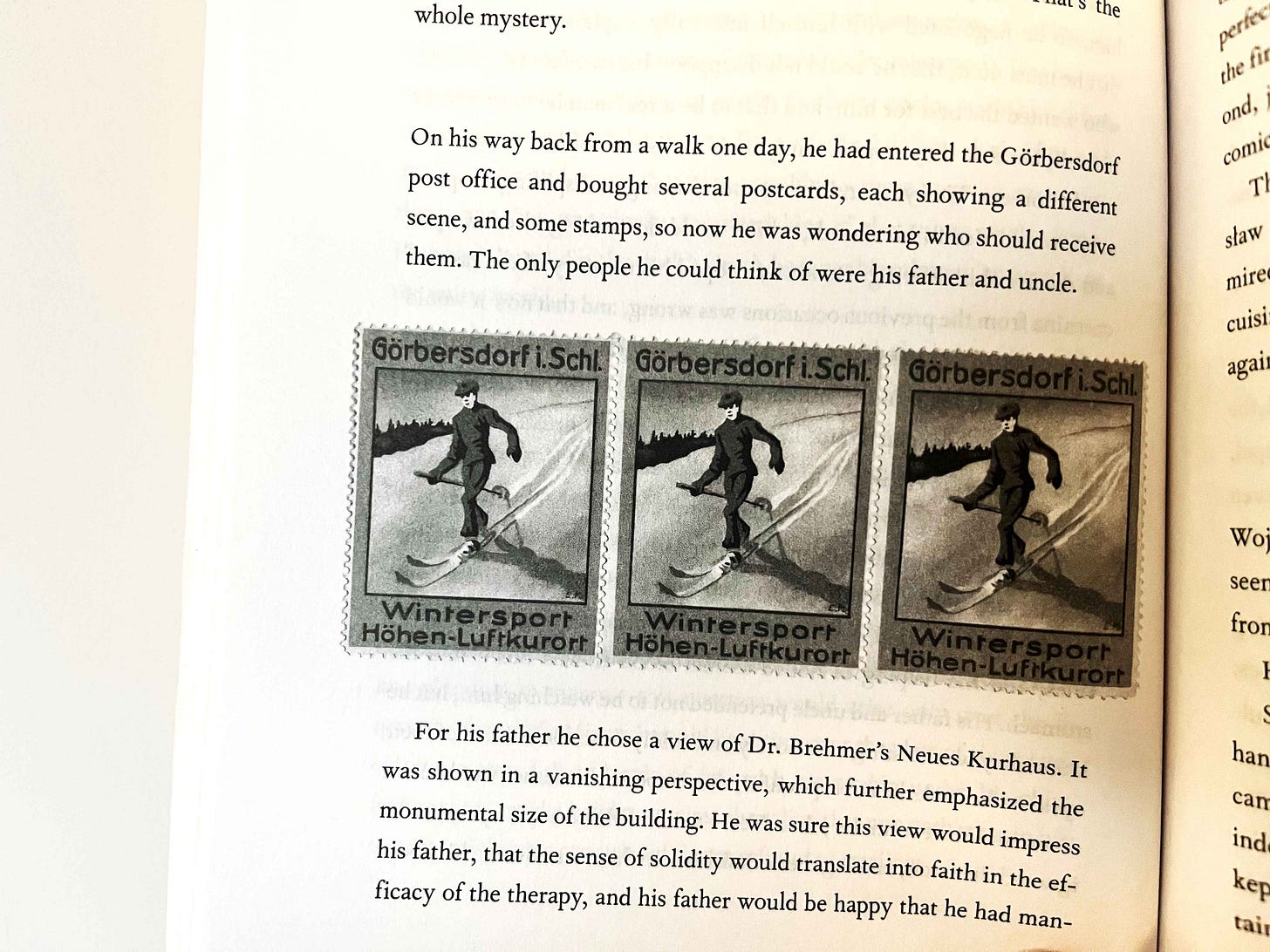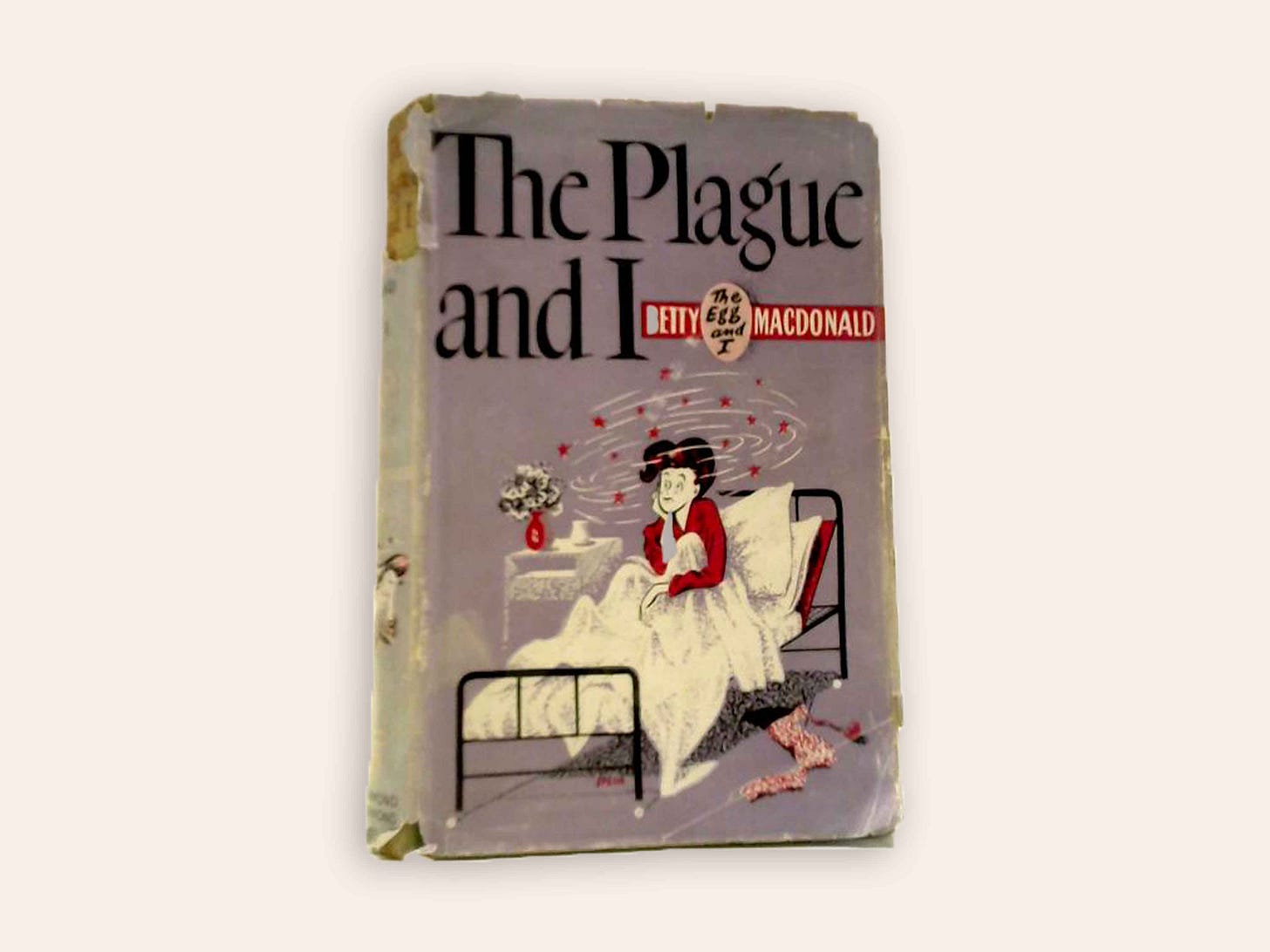The Book Club Review Reading Report: Issue 1
From a Nobel-winning author to the 'Mermaid of Morwenstow'
Hello dear substackers, if you follow what I’m up to with The Book Club Review podcast (new episode on The Empusium just out, by the way) you’ll know the newsletter I used to write on here evolved into a weekly podcastette for paid subscribers. Everyone seems to like them, and I love making them, so that’s all good, but what I find I’m missing now is writing. Every Sunday evening I talk about the five(ish) books I have on my radar that week on Instagram, and so on Mondays I thought I would write them up. Here’s this week’s batch. (Find a note on my star-ratings system at the end.)
Clear by Carys Davies *****
What a quiet beauty of a novella this is! Claire Keegan is everyone’s go-to for short fiction, but I think the two novellas of Carys Davies I have read, West and now Clear, easily match Keegan’s work for beauty and characters that stay with you long after finishing. The book also has that irresistible lure of being something you can sit down and read in a single setting, and yet feel you’ve read something substantial. The novel is set in 1843 and opens with Ivar, a man of indeterminate age living in isolation upon a small Orkney island. Later we learn his brother died, and his mother, grandmother and sister all emigrated to Canada, but he chose to stay, with only a few domestic animals for company. His solitude is interrupted by the arrival of John Ferguson, a clergyman who has been sent by the landowner to evict Ivar, bringing with him a gun in case Ivar proves reluctant to leave. One major impediment to this transaction going smoothly is that Ivar only speaks a dialect of Norn, a now vanished language. Back on the mainland, John’s wife Mary anxiously awaits news. It’s a beautiful study in human relations and people constrained by larger forces around them. It’s tender and surprisingly hopeful as the story evolves in an unexpected direction. Laura and I loved it, and it made for good discussion – a perfect choice for a book club whose members might be short on reading time. (Subscriber pod episode)
A Field Guide to the English Clergy by The Revd. Fergus Butler-Gallie *****
I picked this up in Skoob attracted by the drunk monk on the cover, read a few pages and laughed out loud. I thought I’d discovered some unknown gem, but a tiny amount of googling revealed it to be a Sunday Times bestseller, with a new memoir by the author, Touching Cloth, published recently. My interest in the clergy newly awakened by my love of the poetry-reading vicar Young Hawkes in Beth Brower’s excellent Unselected Journals of Emma M. Lion series, I decided to buy it and read the rest. And what a joy this book is. Butler-Gallie brilliantly interweaves history and comedy to bring his eccentric characters to life. In fact, there have been so many larger-than life clerical figures that I’m hopeful there might be a follow-up. Butler-Gallie writes ‘The men whose lives are detailed in this section represent a mere tasting menu of eccentricity plucked from the rich à la carte selection of clerical strangeness down the ages. There was, alas, no room for figures such as the Cornish incumbent who was so prone to wandering off during services that he had to be chained to a communion rail by the ladies of the congregation. Nor was there space for the Lincolnshire clergyman who, fancying himself an amateur surgeon, got an elephant drunk on ale and tried to dissect it. However the motley collection of mermaid-impersonating, steam-roller driving, bicycle-stealing clerics whose lives are detailed in the following pages are the cream of the crop, glorious in their eccentricities and their folly.’ What I particularly love is that although there is much delight in the lives of these strange individuals, there is not mockery; Butler-Gallie is an ordained Priest and his faith in the institution he serves is palpable, and actually quite inspiring. I can easily imagine him throwing a few sonnets into a sermon.
The Empusium by Olga Tokarczuk ****
I do love those exquisite minimalist blue Fitzcarraldo editions, but was seduced by this trade-paperbackish (my favourite format) US edition I picked up at The American Book Centre in Amsterdam when I was there last Autumn. Tokarczuk fans are in for a treat, though if you’ve yet to discover her I’d suggest starting with Drive Your Plow over the Bones of the Dead. The Empusium is Tokarczuk’s answer to Thomas Mann’s The Magic Mountain, a classic text that has been hugely influential. I think Tokarczuk is a fan, she talks about how she has read The Magic Mountain many times, but what she also couldn’t help but remark on was the absence of women in his story, or where present, the roles they were assigned. And so The Empusium is her response.
It’s set in a health resort in the Silesian mountains where a young Polish sanitation engineer is sent with a diagnosis of TB. Staying in the village guesthouse he embarks on the programme of treatments, and gets to know the other residents. As there’s not much to do, the men dine together, drink, and talk, although the notable thread running through their conversations is the inferiority of women. “In the philosophical sense we cannot treat a woman as a comprehensive, complete subject of the kind that a man is. This means that a woman can only develop and retain her identity within the sphere of a man. It is he who gives a framework to identity”, one character remarks, neatly encapsulating their views in general. Meanwhile Wojnicz is increasingly drawn to the beech woods, and the mysterious mounds he finds there. In the heightened state that comes from drinking the local liqueur, he starts to hear and see things that make him question his senses.
This was a fantastic read, with writing as fine as you would expect from a Nobel prize-winner. There is a brilliant reveal in the afterword, and the book made for great book club discussion, as you’ll hear if you listen to the latest pod episode. I’m giving it 4 rather than 5 stars only because although I was glad to experience it, I did find it slightly hard to stay on track, and overall it seemed more elegant intellectual exercise than a novel that really touched my heart in any way. I suppose as a literary work it’s exemplary, but as something you want to curl up and read it might not hit the sweet spot for you. Worth persevering, though. I recommend the audiobook, brilliantly read by Natasha Soudek.
The Plague and I by Betty Macdonald
Another example of ‘san-fic’, (‘Sanitorium-based fiction’), although this is in fact more of a memoir based on the author’s time at a TB sanatorium where she was sent for a year after being diagnosed. Unlike the comfortable luxury of Thomas Mann’s sanatorium, or even the creepy guesthouse Wojnicz experiences in The Empusium, The Pines is needlessly grim on account of the draconian measures taken by the staff to ensure the patients get well. Enforced bed rest in cold rooms, no reading, cold meals, and only very occasional visiting privileges meant Macdonald was forced to rely deeply on feelings of solidarity with her fellow patients. Under her pen they emerge eccentric, depressed, resigned. Macdonald is a brilliant comic writer and this book – surprisingly, given the setting – will have you laughing out loud. She’s a genius at dark asides, and a TB sanatorium turns out to be the place for them. Her previous memoir, The Egg and I, about her first marriage to a chicken farmer, was a huge bestseller in America and kept her for the rest of her days, although sadly she did not have many of them.
Current read: Glorious Exploits by Ferdia Lennon
I’ve been very much enjoying this delicious mash-up between contemporary Ireland and Ancient Greece. Set at the time of the Peloponnesian War (that went on for many years between states allied to Athens and those allied to Sparta) two local Syracusans hit upon the idea of using Athenian prisoners of war to perform plays by Euripedes (the Athenian playwright). It’s a vivid reminder of the power of culture at a time when you had to see things in person or hear them orally. The writing is dark, funny, and sharp – all bound up in what for me is one of the best covers of recent times (the UK edition is comparatively boring). A treat.
________________________________________________
Guide to star ratings
***** A book I loved, and in which I could find no flaws, or there were flaws, but I loved it so much I didn’t care about them. An enthusiastic recommend.
**** A book I enjoyed, liked, admired, but there must have been something that stopped it being an out-and-out five-star favourite
*** Things I loved, things I didn’t, but what were they?
** What went wrong? Was it the writing? The characters? The plot? May have been one or all of these (including that most insidious of enemies, disappointed expectations)
* While I generally like and admire most things that I read, not every book is for me, and if I’ve given it one star it’s probably because I was hugely disappointed or felt my time had been wasted, and want to warn others against experiencing the same fate.





